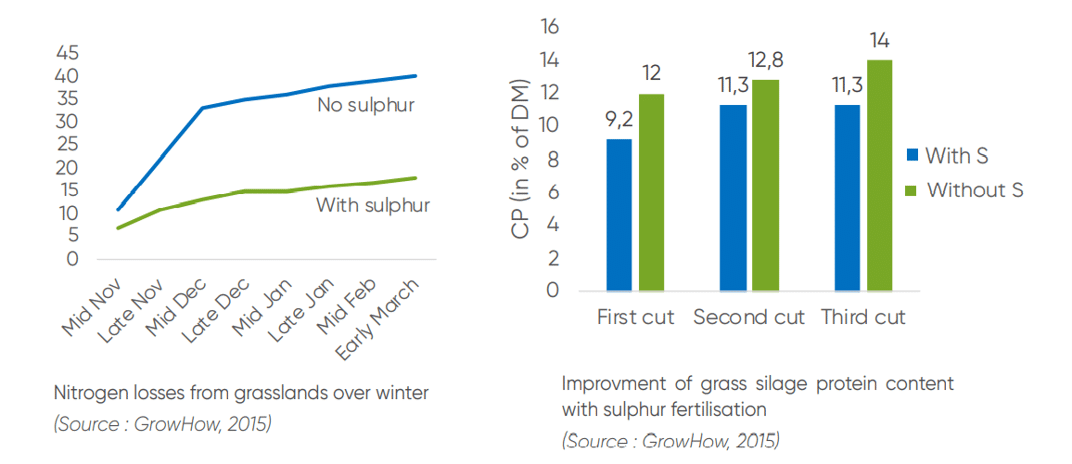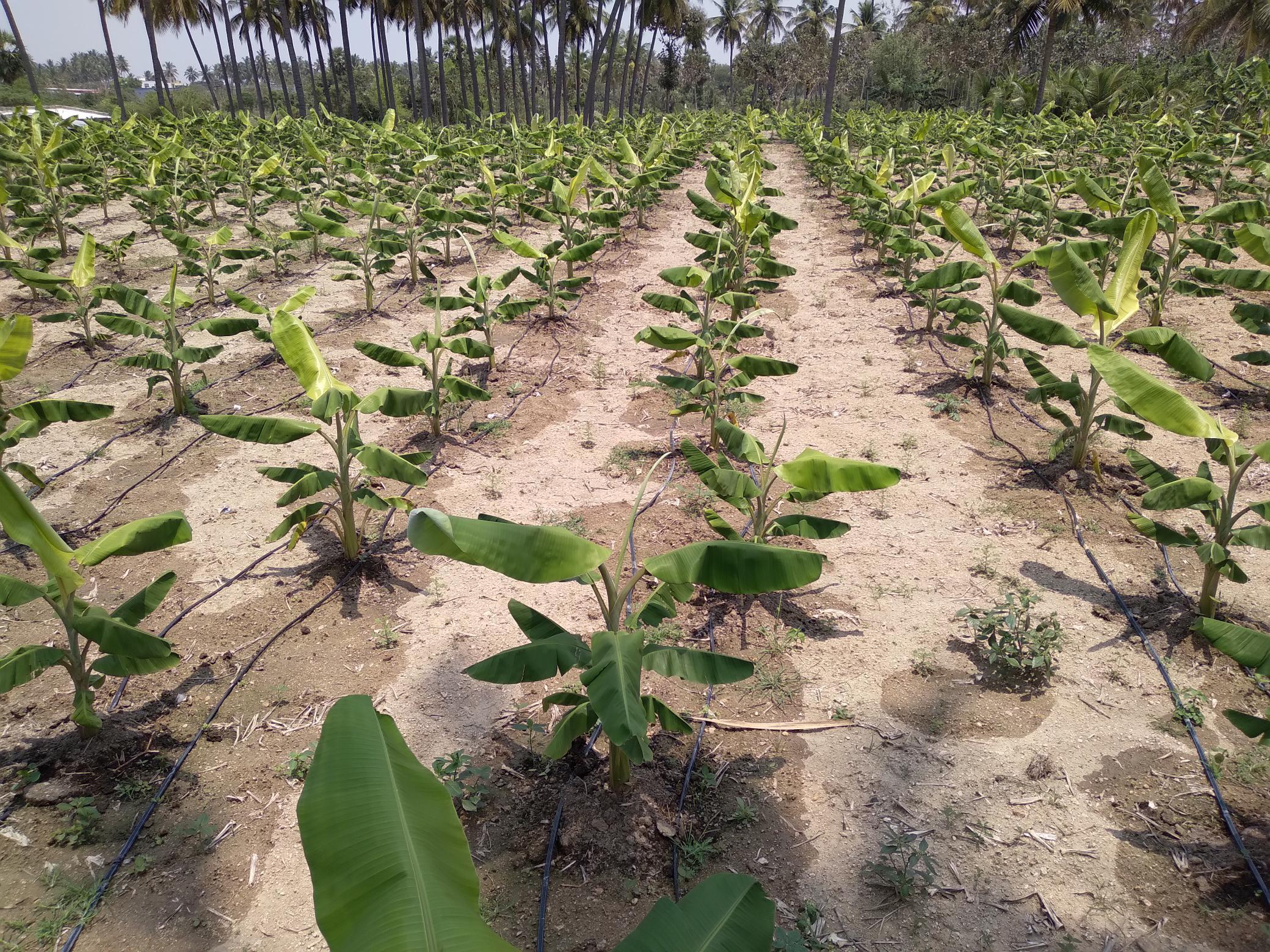In recent years, industrial Sulphur emissions have been reduced, meaning crops receive less sulphur from their environment. It is becoming more and more important to bring additional S to crops. The same goes for grasslands.
Sulphur in grassland can be partly supplied through the mineralization of organic matter. However, mineralization may not be enough, and a lack of S may occur. Sulphur is essential for grasslands in many aspects:
- Sulphur’s well-known synergy with N, increases N efficiency and thus increases the yield of the grassland
- Sulphur is needed for bacterial activity, which is responsible for organic matter mineralization Sulphur protects nodules from nitrate fertilisation, which leads to a reduction of N symbiotic fixation
- Sulphur is required in huge quantities by animals. The higher the sulphur content in the grass, the better it is for animals.
- Sulphur improves the quality of proteins with a higher content of methionin, which is an essential amino acid for animals.
That’s why S fertilization in grassland must not be neglected, and especially if the soil is prone to deficiencies (sandy and shallow soils, winter with heavy rainfall and runoff)




